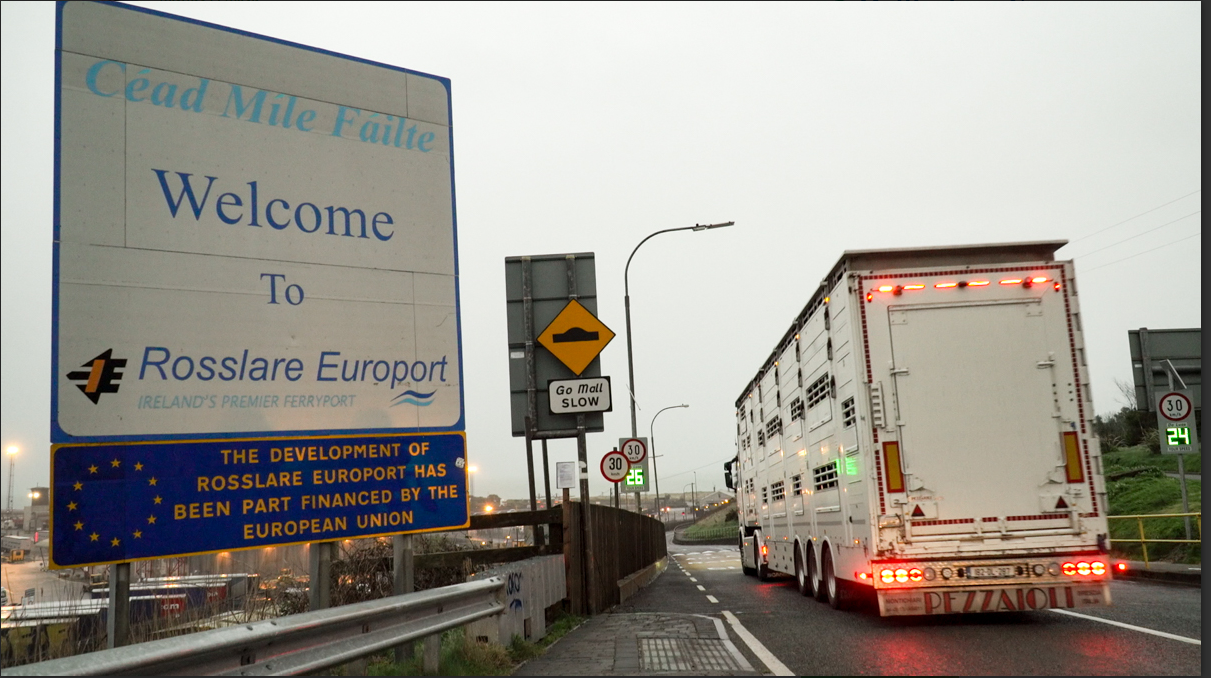Ethical Faming Ireland very much welcomes the outcome of the vote by the ANIT committee of inquiry into long distance animal transport in relation to a ban on the transport of unweaned animals under 35 days of age and limiting journeys of unweaned animals older than 35 days to 2 hours.
This is groundbreaking in terms of animal transport and will effectively mean a ban on the live export of unweaned calves from Ireland, which has caused what can only be described as a hysterical response from farming groups along with MEP Billy Kelleher.
ICSA [Irish Cattle and Sheep Farmers’ Association] president Dermot Kelleher has claimed that the outcome of the vote is “deeply alarming” and will cause “unintended consequences”.
Minister [Charlie] McConalogue stated “it is clear to see that the pressure is there in the market, with interest groups who are now fighting science with an ideology” and that the dairy sector, in particular, is built on the export of live calves.
IFA [Irish Farmers’ Association] Dairy chairman, Stephen Arthur, has said the recommendation to end the transport of unweaned calves would be devastating for the Irish dairy sector.
Utter tosh on all accounts. Yes a large number of vulnerable, unweaned calves are exported to mainland Europe every year but the majority are already reared here for beef.
A ban will put pressure on dairy farmers who will no longer be able to offload their calves at 10-14 days old, but it’s time they took responsibility for the animals they are breeding. No doubt there will be calls for supports for the additional costs, but at the end of the day farmers should not breed animals if they do not have the means to take care of them.
Ban on animal transport wont decimate rural Ireland
Rural Ireland is not going to implode. Rural Ireland isn’t solely made up of dairy farmers. The principles that the European single market was built on do not include animal cruelty and suffering, that is a preposterous statement to make by Kelleher.
There may be an increase on the 25,000 or so calves that are sent to slaughter at a couple of weeks old and on-farm calf deaths may increase, but calf export is also a serious welfare issue that has been ignored for decades.
Herd reduction combined with sexed semen and increased farm inspections by the authorities would address these welfare concerns, with a lower number of higher value calves.
This could also be a good time to give serious thought to calf at foot dairies where the calf stays with the mother and she does all the work looking after her calf, as nature intended. This is a promise made in the programme for government and must be followed up on.
Feed and rest for calves
Calves cannot be fed whilst on the truck, they have to be unloaded and individually fed warm milk and they have to rest for three hours afterward. The ferry journey is 18 hours long and with the loading and unloading and travel time on either end, journey logs obtained under the Freedom of Information Act show that calves are going 24-30 hours with no feed.
Nobody with any compassion or decency can think this is an acceptable way to treat a 15-day-old animal.
There are all kinds of other health and welfare issues with the long distance transport of unweaned calves, as many scientific studies have concluded, due to underdeveloped immune systems and the inability to effectively regulate their body temperature, as well as having little body fat and being wholly dependent on a milk diet.
It is just not possible to transport unweaned calves whilst maintaining their wellbeing because it is not possible to feed the calves during transport. We are at a disadvantage compared to other member states but that is no reason to make vulnerable, unweaned animals suffer.
I would be very interested to know how exactly MEP Kelleher is planning on addressing the feeding issue because there is no way round it. Besides, what makes Kelleher think any amendments and improvements would be adhered to?
It is disappointing that there was no call to ban animal export outside the EU but one step at a time.
From Caroline Rowley, director Ethical Farming Ireland.
